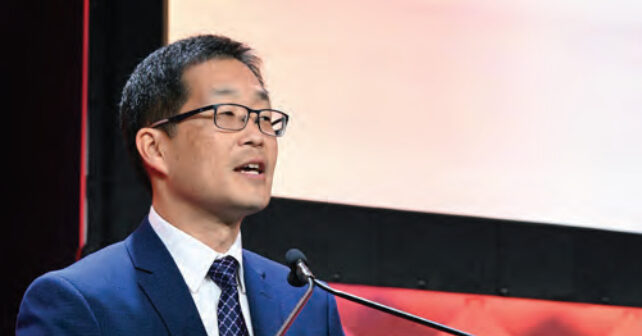
How do you think emergency medicine will transform itself over the next five to 10 years?
Explore This Issue
ACEP Now: Vol 41 – No 12 – December 2022Dr. Kang: I wish I could give you a good answer, except I’m optimistic. As we’ve all known over the last three years, the COVID-19 pandemic has had profound influences, probably accelerated or revealed a lot of cracks in the health care system. And whether there will be fundamental changes demanded by the public, by legislators, or by the health care community, moving forward will be an interesting time. But if we all identify our commonality on what we do best and how we can better become the coordinators of all of acute unscheduled care, and then have better relationships with the coordinators of inpatient care, our hospitalists, I think that we can go ahead and say that we are going to be on the right trajectory for a better future for our specialty.
Second, emergency medicine must promote what we do best and then find new innovative ways of to deliver that care. Whether it’s telehealth, whether it’s improved team dynamics, whether it’s different employment models, I think that our members are always innovative, always seeking how they can deliver their care and exercise their skill sets better, and I’m optimistic that when you find those opportunities and support them, in the end, the cream will rise to the top.
You just mentioned team dynamics. What do you think is the best way that we can incorporate and also train physicians to work alongside emergency physicians in the emergency department?
Dr. Kang: First and foremost, we need to recognize and make sure that everybody agrees that we are the leaders, and with leadership comes responsibility. And that is, we can just say, “Well, they’re part of the team. How can we help others improve both their skill sets, but also make sure that they complement the overall team mission?”
Part of it is their education and training. Many programs do have some curricula that exposes and educates and affords the opportunity to have patient care and learn how to deliver patient care better in the emergency environment. But we also know that there are a lot of training programs that unfortunately don’t always have sufficient patient care, much less experience in the emergency care setting. If they’re going to function in the emergency department, like almost every other profession there, including our nursing colleagues, there is a special skill set that requires education, training, and onboarding to make sure that we can all deliver optimal emergency care.
Pages: 1 2 3 4 5 | Single Page





No Responses to “Catching Up with ACEP President Dr. Chris Kang”